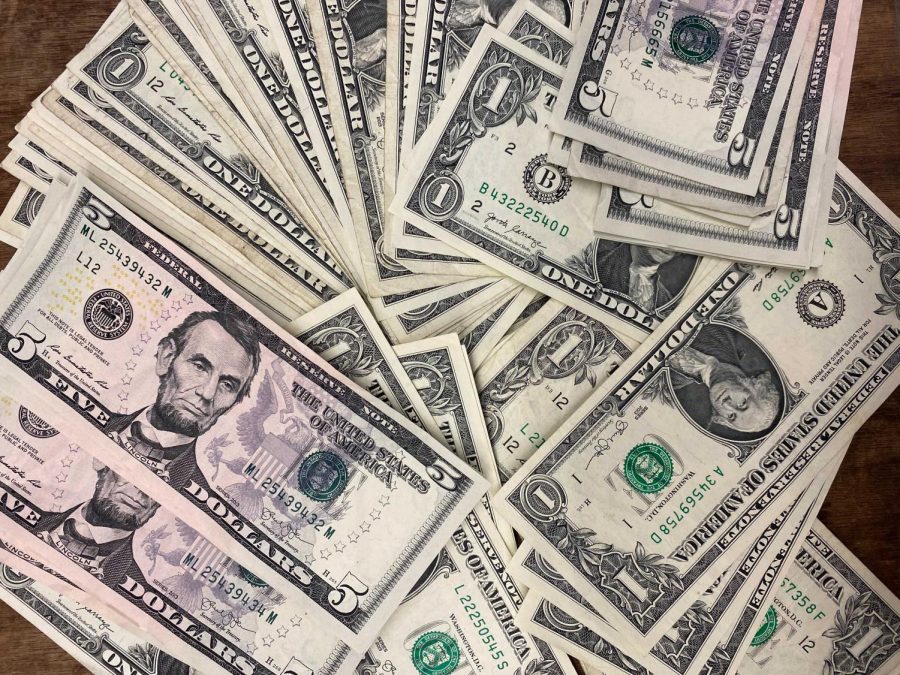As if saving money wasn’t hard enough in the before-times, the coronavirus pandemic and its shaky economy have made it even tougher. Here are 10 good habits for achieving financial security that will get you through the pandemic and set you on a stable course in the future.
Don’t eat out
Going out to eat regularly adds-up, and in uncertain financial times, it’s unwise to spend money on services we could provide for ourselves. Choosing to buy groceries and cook at home instead of eating out will save you money that you might need if your paychecks dry up. And if you cook often enough, you might just wind up with a new hobby. However, if you do eat out, make sure to go to a local restaurant to support your community.
Spend more time in nature
Spending time outdoors is not only a great way to destress, it’s also a money saver. You’re a lot less likely — or maybe even impossible — to shop online or fork over movie rental fees when you’re hiking in a spotty-service corner of Sonoma County. The more time you spend at home, the more likely you are to drop $50 on a new shirt after seeing your favorite actor wear it in the flick you rented.
Cancel superfluous subscriptions
Do you really need that $20 a month subscription to the Dapper Dog Box or the $13.95 subscription to Smartass & Sass? Subscriptions like these can pile up; you might save hundreds of dollars a year after cancelling the services you don’t really need.
Don’t buy unnecessary stuff
Sure, you’re tempted by those 707-horsepower Dodge Hellcat Challenger commercials. And you’d love to buy that brand new Xbox Series X that is currently running for $500. But these purchases aren’t necessary and eat into the cash you might need down the road for necessities like rent or gas.
Sell what you don’t use
As the saying goes, “One man’s trash is another man’s treasure.” Capitalize on that idea by hosting a garage sale or selling unnecessary stuff to a consignment shop. You won’t make money if you donate your never-worn clothes or extra furniture pieces to Goodwill, but you could earn a tax write-off which may reduce your tax bill in April.
Pick up side work
Start thinking about taking on a side job. Lots of students drive for Uber Eats or DoorDash, but you should also consider roles like working with a carpenter or mechanic and supporting them with straightforward tasks that don’t require special skills but make their work go faster. Skilled laborers often look for helpers — and they almost always pay cash.
Auto-save whatever you can each month
Consider what you earn in an average month and determine an amount you can automatically save after your paycheck arrives, no exceptions. Can you automatically put $15 a month in a savings account? What about $50? Or more? Depositing a standard, set amount eventually forces you to adjust your mindset; it will be as if you aren’t earning that $15 because you can’t spend it. But you are earning it, and better yet, you’re saving it. By the end of the year, you’ll have more in savings than you realize.
Avoid debt
Nothing ruins financial stability like bad debt. Do your best to live on the money you make — or very close to it. If you need to use a credit card to pay your bills, cut your spending back as much as possible and carry only the lowest balance you can. Go with the credit card with the lowest interest possible, as it makes balances more manageable.
Invest
The gold standard for growing your wealth is investing. Investments come in many forms — some prefer the stock market, others swear by property — but the idea is to use your money to make money. And you don’t need a lot of money to get started. Investigate penny stocks, or stocks that trade for less than $5 a share. These investments are considered high-risk, but if you are diligent (and make the right guesses), the payouts can be lucrative.
Use a credit card, responsibly
Time and time again young people are told the last thing to do is use a credit card, because if not used responsibly, you’ll wind up in debt. But what people forget to mention is that without a credit card, you can’t build credit, and good credit is required for securing low interest rates on loans and more. Without credit, it’s almost impossible to buy big-ticket items like cars or even sign some apartment leases. Responsible credit card usage is key to financial stability.





